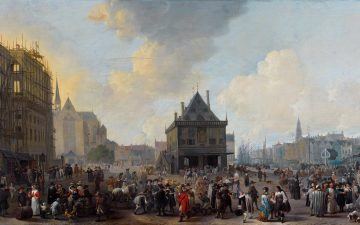 Joel Mokyr in Aeon:
Joel Mokyr in Aeon:
How and why did the modern world and its unprecedented prosperity begin? Learned tomes by historians, economists, political scientists and other scholars fill many bookshelves with explanations of how and why the process of modern economic growth or ‘the Great Enrichment’ exploded in western Europe in the 18th century. One of the oldest and most persuasive explanations is the long political fragmentation of Europe. For centuries, no ruler had ever been able to unite Europe the way the Mongols and the Mings had united China.
It should be emphasised that Europe’s success was not the result of any inherent superiority of European (much less Christian) culture. It was rather what is known as a classical emergent property, a complex and unintended outcome of simpler interactions on the whole. The modern European economic miracle was the result of contingent institutional outcomes. It was neither designed nor planned. But it happened, and once it began, it generated a self-reinforcing dynamic of economic progress that made knowledge-driven growth both possible and sustainable.
More here.
